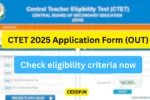Low Income Worker Relief 2025: The South African government has introduced the Low Income Worker Relief 2025 program to support vulnerable workers struggling with rising living costs. Through this initiative, qualifying individuals will receive a monthly stipend of R1,200 along with R400 food vouchers, aimed at easing financial pressure and ensuring food security. This program is a significant step in protecting low-income households, especially during times of economic uncertainty.
Low Income Worker Relief Program?
The Low Income Worker Relief is a social assistance initiative that provides direct financial support and essential food vouchers to workers earning below a certain income threshold. Unlike the SASSA Old Age Pension or Disability Grant, this program focuses specifically on active workers in low-paying jobs who often fall through the cracks of other welfare systems.
By combining monthly R1,200 stipends with R400 food vouchers, the program ensures both income support and access to basic nutrition.
Monthly Stipends & Food Vouchers Explained
- R1,200 Monthly Stipend: Aimed at helping low-income workers cover basic living expenses such as rent, utilities, and transport.
- R400 Food Voucher: Can be used at participating retailers to buy essential groceries, ensuring that families have guaranteed access to nutritious food.
This dual support system is designed to improve quality of life while reducing poverty and hunger.
Who Qualifies for the Relief in 2025?
Eligibility for the Low Income Worker Relief 2025 is based on income, employment status, and residency:
- Applicants must be South African citizens or permanent residents.
- Workers must be formally or informally employed but earning below a set monthly threshold (amount to be confirmed by government notices).
- Only individuals not already receiving large social grants (such as the Old Age Pension or full Disability Grant) will qualify.
- Proof of income, ID documents, and employment verification may be required during the application process.
Low Income Worker Relief 2025 Application Process
Applying for the relief will involve:
- Registration: Eligible workers can register online or at designated government service points.
- Verification: Applicants must submit proof of income, ID, and employment status.
- Approval: Once verified, beneficiaries will begin receiving their monthly R1,200 stipend directly into their bank accounts, along with food vouchers distributed via digital or card-based systems.
Why This Program Matters in 2025
The Low Income Worker Relief program provides an important safety net for workers earning minimum or below-minimum wages. Rising costs of food, transport, and utilities have placed severe pressure on low-income households. By offering R1,200 stipends and R400 vouchers, the government is taking steps to reduce inequality and ensure working families do not fall deeper into poverty.
Low Income Worker Relief 2025 Conclusion
The Low Income Worker Relief 2025 represents a major effort to support South Africa’s most vulnerable workers. With its monthly R1,200 cash support and R400 food voucher program, it addresses both income security and food access. For qualifying low-income workers, this initiative provides not just financial assistance but also hope for a more stable future.
Low Income Worker Relief 2025 (FAQ)
| Question | Answer |
|---|---|
| How much is the Low Income Worker Relief 2025 stipend? | Beneficiaries will receive R1,200 per month as a cash stipend. |
| What is included besides the stipend? | In addition to cash, workers will also receive a R400 food voucher usable at participating retailers. |
| Who qualifies for the Low Income Worker Relief? | South African citizens or permanent residents who are employed but earning below the set monthly income threshold qualify. |
| How do I apply for the relief program? | Applications can be submitted online through the government portal or at designated service centers with proof of income and ID. |
| When will payments start? | Payments are expected to begin in 2025 once applications are verified and approved by the relevant authorities. |





